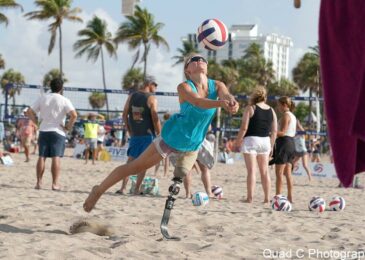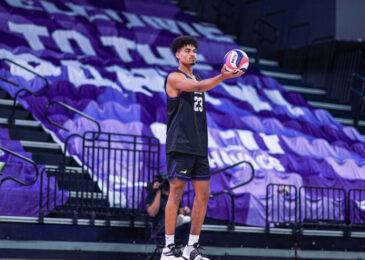For parents and coaches, the idea of pushing young athletes to specialize in a single sport is tempting. However, research indicates that early specialization may not be necessary and could even have negative effects on performance. In this article, we will explore five key insights about sport specialization, particularly among younger athletes, that parents and coaches should be aware of.
Sampling Sports Improves Athleticism
Encouraging children to participate in a variety of sports can significantly enhance their athleticism. By engaging in different sports and activities, young athletes develop a wide range of movement patterns, improving their overall capacity for movement. This foundation will benefit them as they progress in any specific sport. Rather than focusing on specialization, it is recommended to embrace sports sampling, where athletes have the opportunity to try various sports and activities.
Bạn đang xem: Five Things to Know About Sport Specialization
Sport Sampling Creates Lifelong Athletes
While high-performance team sports have their merits, participating in “lifestyle sports” such as rock climbing, mountain biking, and paddleboarding can be equally important for athletic development. These non-traditional sports enhance balance, agility, and overall athleticism, serving as a solid foundation for more sport-specific skills. Research suggests that family patterns of activity significantly impact a child’s level of physical activity. Engaging in a variety of family-oriented activities is crucial for cultivating a lifelong love for physical activity.
General Skills Improve Specific Performances
Xem thêm : May-Treanor, Scott-Arruda Elected to International Volleyball Hall of Fame
Contrary to popular belief, young athletes do not need to specialize early in life to develop highly specialized skills. Pursuing a wide range of sports, including individual and team-based sports, can provide mental benefits and contribute to skill development. The focus should be on developing fundamental and foundational skills and sampling enough sports to discover where their true passions lie. This approach allows athletes to confidently choose a sport to specialize in later on.
Athletes Who Specialize Risk Injury
Many believe that specialization is necessary for athletic success. However, athletes who specialize at a young age are more prone to injuries and are more likely to drop out of sports altogether. Early specialization can lead to imbalances in the body and increased risks of overtraining. Engaging in sports that emphasize different types of movement can help minimize the risk of injury and promote a well-rounded athletic development. Additionally, early specialization may result in body image issues and disordered eating.
Athletes May Change Their Minds
It’s important to recognize that athletes may change their interests and passions as they grow older. A 12-year-old who loves gymnastics might discover a new passion for soccer or triathlon by the age of 17. Long-term success in sports is more likely when children have the opportunity to explore multiple sports and activities. Specializing in one sport at an early age may limit an athlete’s potential in other areas. By fostering a diverse range of sports experiences, parents can help their child identify their true talents and passions.
FAQs
Q: Is early specialization necessary for athletic success?
Xem thêm : U.S. Men Take Cuba to Five in Pan Am Cup Loss
A: No, early specialization is not necessary for athletic success. In fact, it may increase the risk of injury and lead to a drop in participation in sports.
Q: What are some benefits of sampling multiple sports?
A: Sampling multiple sports improves athleticism, enhances general skills that can be applied to any sport, and helps athletes discover their true passions.
Summary
Sport specialization is a topic that parents and coaches should approach with caution. Research suggests that early specialization may not be necessary for athletic success and can even have negative consequences. Encouraging children to sample a variety of sports and activities can enhance their athleticism and provide them with a solid foundation of skills that can be applied to any sport. It also allows athletes to discover their true passions and reduces the risk of injury and burnout. By fostering a diverse range of sports experiences, parents can help cultivate lifelong athletes who are not only successful but also enjoy a healthy and active lifestyle. For more information, visit Alpinetgheep.com.
Nguồn: https://www.alpinetgheep.com
Danh mục: Volleyball



